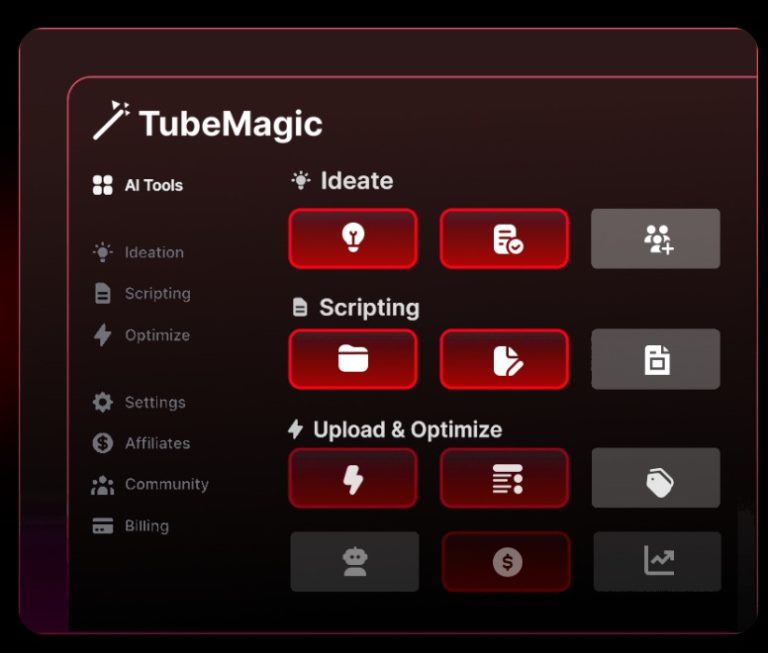Introduction
Affiliate marketing can be a lucrative business, but to succeed, you need to identify your niche to promote the right products to the right audience. In this essential guide, we will explore the ins and outs of niche selection in affiliate marketing.

Defining Affiliate Marketing
Affiliate marketing is a performance-based marketing model where a business rewards affiliates for driving traffic or sales to their products or services. As an affiliate, your role is to promote products that align with your niche to your audience through various channels.
How Niche Selection Impacts Affiliate Marketing Success
Niche selection plays a significant role in determining your affiliate marketing success. Promoting products that don’t fit your niche can result in uninterested audiences and low conversions, while niche-specific products attract engaged and loyal customers.
The Importance of Finding Your Niche
Finding your niche allows you to focus your marketing efforts on a specific audience with a shared interest in the products you promote, increasing the likelihood of conversions. Additionally, identifying your niche can differentiate you from the competition and establish your authority in the industry.
Understanding Your Interests and Passions
Identifying your interests and passions is the first step in finding your niche. Listing your hobbies, skills, and knowledge areas can help you narrow down your options. Remember, it’s easier to promote something you’re passionate about.
Exploring Your Interests and Passions
After identifying your interests and passions, research and read up on the latest trends, products, and services in the industry. This exploration can provide insights into potential niches and help you understand the competition in the market.
How to Determine Your Strengths and Weaknesses
Knowing your strengths and weaknesses can help you determine which niches align with your abilities and which ones may require more effort. Conduct a personal SWOT (Strengths, Weaknesses, Opportunities, and Threats) analysis to identify areas of growth.
Aligning Interests and Skills
Aligning your interests and skills with an industry niche can give you a competitive advantage in affiliate marketing. This alignment sets you apart from affiliates who don’t have industry-specific knowledge.
Demographic Research and Analysis
Once you’ve identified your niche, you need to research the demographic to target the right audience effectively.
Defining the Target Demographic in Affiliate Marketing
Understanding your target demographic includes their age, gender, education level, income, interests, and values. These factors allow you to market your products effectively to the right audience.
Understanding the Needs and Interests of Your Target Demographic
Researching the needs and interests of your target demographic enables you to create personalized solutions for your audience and promote products that appeal to their interests.
Using Analytics to Identify Top-Tier Demographics
Analytics tools can help identify your top-tier demographics based on their behavior on your website or social media channels. This data can guide your marketing strategy in the future.
Identifying Your Competition
Analyzing your competition is an essential step in identifying niche-specific opportunities and strategies.
Gauge the Competition Within Your Niche
Knowing who your competitors are, their strengths, and their weaknesses can help identify opportunities to differentiate and fill gaps in the market.
Analyzing Your Competitor’s Marketing Strategies
Analyzing competitor marketing strategies provides insights into areas for improvement and innovative ways to market your products.
Determining Unique Selling Points
Identifying your unique selling points (USPs) enables you to differentiate from your competitors and can help improve conversions. USPs can include product quality, customer service, pricing, and more.
Analyzing Monetization Opportunities
Analyzing monetization opportunities can help identify profitable niches and products.
Available Monetization Methods in Affiliate Marketing
There are various monetization methods available in affiliate marketing, such as commission-based models, pay-per-click, or pay-per-lead models. Knowing which works best for your niche can improve your chances of success.
Identifying Top Paying Affiliate Programs in Your Niche
Researching top-paying affiliate programs in your niche can increase your earnings potential. Ensure they align with your brand’s values and your target demographic’s interests.
Analyzing the Earning Potential of Your Niche
Estimating the earning potential of your niche enables you to set realistic goals and track your progress. Look at your competitor’s earnings and their market share for insights.
Building Your Brand and Authority
Building your brand and authority is essential to establish a connection with your audience and increase conversions.
Establishing Authority within Your Niche
Establishing authority involves maintaining consistent content creation, sharing relevant industry-related news, and sharing personal experiences in the industry. This strategy helps build trust and credibility with your audience.
Building Trust and Credibility
Building trust and credibility involves being transparent, having strong customer service, and showcasing real reviews from satisfied customers. This strategy establishes a connection with your audience and increases the likelihood of conversions.
How Content Creation Improves Your Brand’s Reputation
Creating consistent and valuable content increases the chances of attracting and retaining visitors to your website. It also establishes your brand’s authority and expertise in the industry.
Creating a Content Strategy
Creating a content strategy includes understanding your target audience’s interests, creating a content plan of action, and diversifying your content types to cater to different learning preferences.
Differentiating Content Types
Diversifying your content types allows you to cater to different learning preferences, such as blog articles, videos, infographics, or podcasts.
Creating a Content Plan of Action
Creating a content plan of action involves scheduling and organizing content creation to maintain consistency and stay relevant to your audience.
The Importance of Consistent Content Creation
Consistent content creation builds your brand’s reputation and establishes your authority in the industry, leading to increased conversions.
Developing a Marketing Strategy
Developing a marketing strategy includes selecting the most effective marketing channels and designing a high-converting funnel.
Selecting Which Marketing Channels Best Suit Your Niche
Selecting marketing channels that cater to your target demographic’s interests and preferences results in increased conversions.
Designing a High-Converting Funnel
Designing a high-converting funnel includes creating a clear call-to-action, maintaining consistency, and personalizing the user experience.
Leveraging Social Media to Amplify Outreach
Leveraging social media channels increases your brand’s reach and amplifies your marketing messages, leading to increased conversions.
Optimizing Your Content for SEO
Optimizing your content for SEO involves researching and identifying niche-relevant keywords and implementing effective on-page optimization strategies.
What is SEO?
SEO is the process of optimizing your website content and structure to rank higher in search engine results pages (SERPs).
How to Identify Niche Relevant Keywords
Keyword research tools can help identify niche relevant keywords and optimize your content to rank higher in search engines.
On-Page Optimization Strategies
On-page optimization includes optimizing your content, meta tags, and internal linking to cater to search engines and improve user experience.
Measuring Your Success
To gauge the efficacy of your marketing and content tactics, it is crucial to identify success metrics and monitor them consistently.
Determining Success Metrics
Determining success metrics involves deciding which metrics to track, such as conversion rates, click-through rates, or cost per acquisition.
The Importance of Tracking Your Metrics
Tracking your metrics enables you to identify areas for improvement, set realistic goals, and measure your progress.
How to Analyze Your Data
Analyzing your data involves identifying trends, measuring the effectiveness of your strategies, and optimizing your marketing and content strategies based on your findings.
Scaling Your Business
Scaling your business involves identifying expansion opportunities and building a team to meet growing demands.
Identifying Opportunities for Expansion
Identifying potential expansion opportunities enables you to diversify your products, increase revenue, and attract a wider audience.
The Role of Team Building
Building a team enables you to delegate tasks, improve efficiency, and scale your business to meet growing demands.
Outsourcing to Meet Demands
Outsourcing certain tasks, such as content creation or customer service, can free up time and improve efficiency in your affiliate marketing business.
Conclusion
In conclusion, niche identification is essential to your success in affiliate marketing. Finding a profitable niche involves understanding your interests and passions, researching your target demographic, analyzing monetization opportunities, building your brand and authority, developing an effective marketing strategy, and measuring your success. Continuous improvement through tracking and optimization is also essential to grow and scale your business.
FAQs
Here are some commonly asked questions related to identifying your niche in affiliate marketing:
How long does it take to identify a profitable niche?
Finding a profitable niche can take several weeks or even months of research and exploration.
Can I switch my niche?
Yes, you can switch your niche if you find that your current niche is not profitable or does not align with your passions or interests.
Is affiliate marketing relatively easy to get into?
While affiliate marketing is relatively easy to get into, it requires dedication, perseverance, and continuous improvement to succeed.








